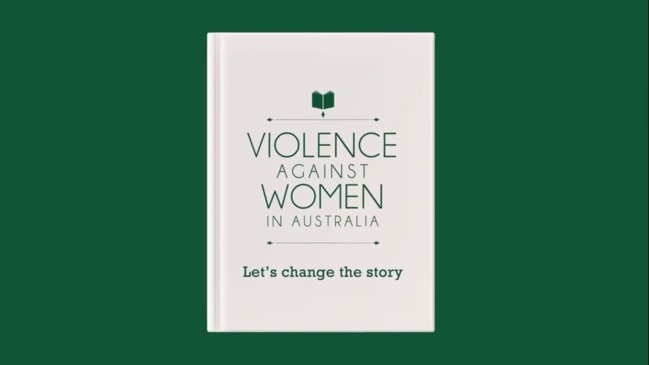Domestic violence victim says phone call to her mother saved her from attack
A survivor of an alleged domestic violence assault tells Lauren Novak of the call that saved her – and the disconnect in finding services to help.

National
Don't miss out on the headlines from National. Followed categories will be added to My News.
- Domestic violence: don’t put up with disrespect
- SA Weekend investigates South Australia’s violence epidemic
A young woman has told how a panicked phone call to her mum during an alleged attack by her boyfriend saved her life – and is now pleading with police to lay charges.
Kylie*, not her real name, told The Advertiser she “thought I was dead” when her then-partner tried to push her head into a pillow as her stricken mother listened down the phone line.
“I remember saying to mum … ‘please save me, he’s going to kill me’. I honestly thought that was it. If it wasn’t for mum, I would have been dead I reckon,” the woman, in her 20s, recalled.
The man – a high-profile South Australian – was not charged over the incident, which occurred interstate.
The Advertiser is unable to publish the names of Kylie, her ex-partner or her mother, or the location, for legal reasons but has seen photographs related to the alleged attack.
Kylie, who lives in SA, is preparing a formal complaint about the management of her case by interstate authorities and is asking them to reconsider evidence to lay a charge.
She said staff at an interstate hospital also failed to ask how she was injured when she attended for treatment, watched over by the man.
“You could tell that I’d been abused – I had bruises everywhere. I was hoping they would (ask me). I would have told them what had happened,” she said tearfully.
SA Police have since generated an intervention order, which is meant to prevent the man from harassing or assaulting Kylie again.
The young woman contacted The Advertiser in the hope of encouraging other women experiencing violence in their relationship to seek help early.
SA’s Victims’ Rights Commissioner Bronwyn Killmier is supporting her to make a formal complaint to interstate authorities, including an appeal to lay charges.
Ms Killmier said she “would like to think that victims would be treated differently in this state”, but noted that “the criminal justice system is complex and often victims feel overwhelmed and confused and do not know where to seek help”.
“Speaking out about abuse is not always an easy decision for many survivors and when they are faced with disbelief, they may give up,” she said.
Late last year, Kylie was staying at an interstate apartment with her then-boyfriend – who she said had been abusive previously – when he entered a bedroom where she was resting.
“He said I lied to him … I think it was just him finding any reason to attack me,” she said. “He jumped on top of me (on the bed). He grabbed hold of my boob. He was trying to get me to turn over, trying to push my head down into the pillow.” Kylie said the man was much larger than her and “there’s no way I could have stopped him”.
“I was tiny because I was in an abusive relationship, not eating, (suffering) anxiety,” she said. “My phone was under the pillow. I just grabbed it and mum’s number was the last number I had dialled. I was able to put it on speaker and then she was able to yell at him over the phone.
“I was saying to him ‘What have I done? I love you. Why are you doing this to me?’”
Kylie said the alleged attack caused a large wound she sustained in a previous incident, which required stitches and glue, to bleed again.
Kylie’s mother told The Advertiser that her daughter was crying down the phone and “very upset”.
“We were just panicking. I’m pretty sure she said he was hitting her or he was on top of her. (She) is lucky she didn’t die. If she had stayed any longer he would have killed her I think,” the mother said.
However, the older woman said she was not interviewed by interstate police or given the opportunity to make a formal statement.
Kylie said her stepfather, who also heard her panicked call, rang interstate police from their home in SA, which prompted her then-partner to stop the alleged assault and leave the room.
She remained on the phone until officers arrived, wearing body-worn cameras which captured footage of the pair.
Kylie concedes she was “very agitated” following the alleged attack. “I don’t think any victim is going to be calm in that circumstance,” she said.
The officers eventually took the man away and arranged an ambulance to take Kylie to hospital.
Kylie said she was told by interstate police that there was “not enough evidence” to lay a charge over the alleged attack and said they rejected suggestions to use testimony from her mother.
The family wants police to review phone records of the call between mother and daughter, the stepfather’s call to police, and photos which show bruising to the young woman’s breast and back, including a mark which appears to be shaped like a shoe.
Responding to inquiries from The Advertiser, a spokesman for the interstate police service said it had “not received a formal complaint” about the incident.
He added that officers were “committed to providing a timely and professional response to supporting victims of domestic violence and investigating incidents reported to police”.
Kylie’s formal complaint will also raise concerns that she was not directed to support services.
“I wasn’t given any booklets or guides on how to seek help. Any help I’ve come across, I’ve found myself and I’m still struggling,” she said.
A charter of victims’ rights in the state where the alleged attack occurred explicitly says: “You should be given information as soon as possible about services that can help you recover”. Victims can also “expect to be informed” about decisions, including “the progress of the police investigation … not bringing charges, (or) substantial changes to the charges”.
Ms Killmier said victims of crimes in SA had been caught off guard when police or prosecutors dropped or changed charges without keeping them informed.
She said victims in SA were provided with a booklet outlining avenues for support, such as counselling.

Ms Killmier was “looking at ways to make it easier for victims to navigate the criminal justice system” in SA, which could include “greater case co-ordination or a one-point-of-entry model”.
“Often people come to my office too late for me to be able to meaningfully assist them, as their matter has been completed and they were unaware of their rights,” she said.
Today, Kylie has a diagnosis of post-traumatic stress disorder and does not feel safe.
“I feel like I can’t be settled because he’s going to come after me,” she said.
She said abuse began very early in the relationship but feelings of shame meant she “kept it all very hidden”.
“I’d made excuses for him. He made me feel like I was crazy, like it was my fault. It just became emotionally draining and I couldn’t see a way out,” she said.
“He would make it sound like I wasn’t going to get anyone better, no one else would have me, I’m not worth anything, and I believed him.”
Ms Killmier said “feelings of confusion, shame and embarrassment, fear of psychologically reliving (an) incident or a reluctance to acknowledge the incident ever occurred” were common among domestic violence victims.
Kylie said she had seen a GP during the relationship, who appeared to suspect she was being abused. But her then-partner usually attended appointments with her, which stopped her from speaking up.
She is now urging other women in similar situations to take any opportunity to seek help. “I want girls to come forward straight away and to know that there is help out there,” she said.
“Even if you don’t get asked … when you do get a free minute, make sure you say something.”
Harrowing stories of abuse are common
Analysis – Lauren Novak
Kylie’s story is infuriatingly familiar.
I’ve lost count of the number of women, or their loved ones, who have contacted me after escaping an abusive relationship and have no idea what to do next.
There are also those who have been assaulted by a partner but say police didn’t take their report seriously.
Or the bloke was arrested but not charged, or charges were dropped because there wasn’t “enough evidence” – but the reasons haven’t fully been explained.
These women and their families often can’t afford to hire a lawyer or see a psychologist, so they just try to muddle through. More and more are reaching out to the media in desperation.
The infuriating thing is that there are so many services working tirelessly in South Australia to help victims of family violence, but the people who need them often seem completely unaware that they exist.
Like the woman who needed help to get an intervention order against her ex-partner but had never heard of the Women’s Domestic Violence Court Assistance Service – an initiative specifically funded for that purpose.
She’d not heard of the Women’s Legal Service or Legal Services Commission either.
The State Government gives these and other worthy organisations hundreds of thousands of taxpayer dollars every year (although still not enough to meet demand) and they do the best they can to raise awareness.
So something is wrong when our system fails to send victims in their direction.
The feeling that no one will be there to help, or no one will believe them, keeps too many victims stuck in dangerous relationships for too long.
There are more policies and laws in place now to give weight to their experience, but stories of police officers or judges who don’t acknowledge the complexities continue to emerge.
Doctors and nurses are receiving more training to recognise the signs on the frontline and offer help, but sometimes still miss red flags or feel ill-equipped to broach such sensitive topics.
And, like Kylie, many victims remain too petrified to confide in others because manipulative abusers make sure they are always there, watching or threatening repercussions.
But perhaps the most infuriating part of Kylie’s story is that she wishes she’d acted earlier.
So many women say this once they’re finally on the other side. So many relatives and friends say this only when it is too late for their murdered loved one.
They should know that help isavailable. We must get better at closing the gaps between those who provide it and those who need it.
Originally published as Domestic violence victim says phone call to her mother saved her from attack

